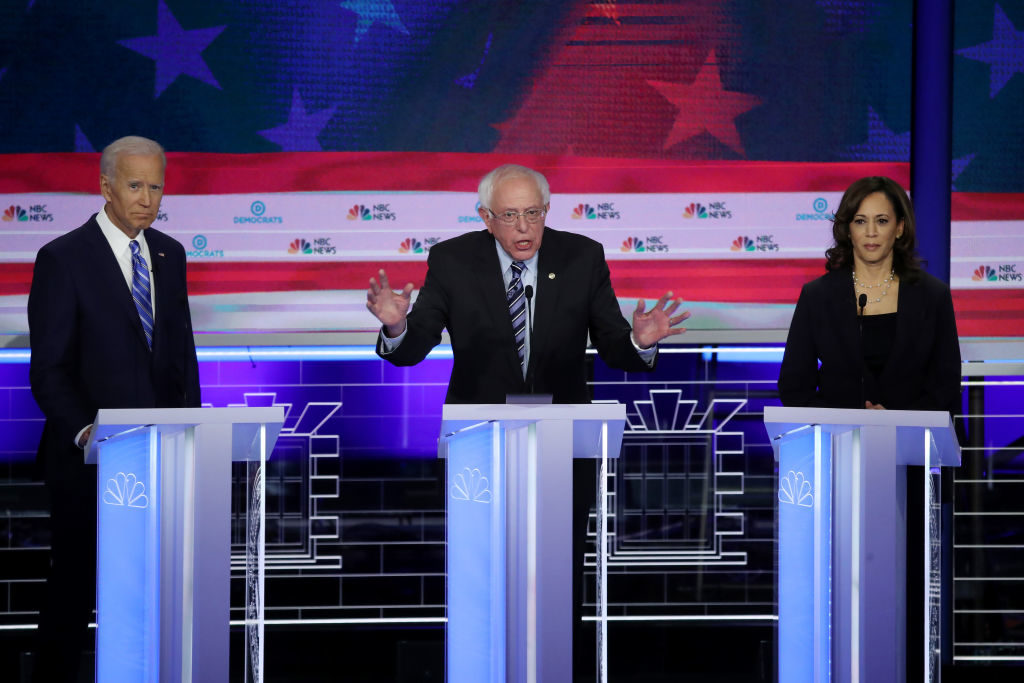The plurality vote leader should win a contested convention, unless

At the debate Wednesday, candidates were asked whether they would pledge to support the plurality leader before the convention, and everyone but the candidate who is the most likely to be the delegate leader declined to say yes. But the “let the process play out” answers were, as far as they went, right in that it depends on what kind of scenario you’re talking about:
Virtually no one has a strong, context-neutral opinion on whether a candidate who enters the convention with a plurality of delegates should automatically get the nomination *no matter how small that plurality is.*— Eric Levitz (@EricLevitz) February 20, 2020
The stakes of political conflict are too high — and the theory of procedural justice in this circumstance too arbitrary — for anyone to prioritize principle over outcome. (Fortunately, Bernie appears on track to win a large plurality, so this prob won’t matter).— Eric Levitz (@EricLevitz) February 20, 2020
If a candidate has a substantial plurality lead, say 40%+ of the delegates and more than a 10 point margin over anyone else — then of course they should be the nominee. Even there was a reason to think that party elites were better at picking general election candidates than voters — which there’s isn’t — there’s no way an alternative candidate installed in those circumstances would be a stronger candidate than the plurality leader. This should be a no brainer.
If there’s a wildly split vote, with nobody getting more than 35% of the delegates and multiple candidates amassing decent amounts of delegates, the situation is much trickier, and convention delegates should take the best available information about voter second choices into account while presumptively favoring the plurality leader.
One thing we should be clear about, though, is that this a terrible system. A contested convention in the latter scenario would be very likely to produce a nominee weaker than any nominee who emerged the clear victor from a voting process would be. We can argue the merits of elite selection vs. democratic selection in the abstract, but a system in which voters expect to choose the leader through an interminable series of votes and then have delegates choose a candidate with no clear criteria (and without good information about candidate rankings) is a recipe for a nominee considered illegitimate by wide swaths of the party. Media types might be cheering on the latter scenario, but anyone who cares about beating Trump should be hoping nothing like it happens.
Going forward, I have four words: national ranked choice vote.


